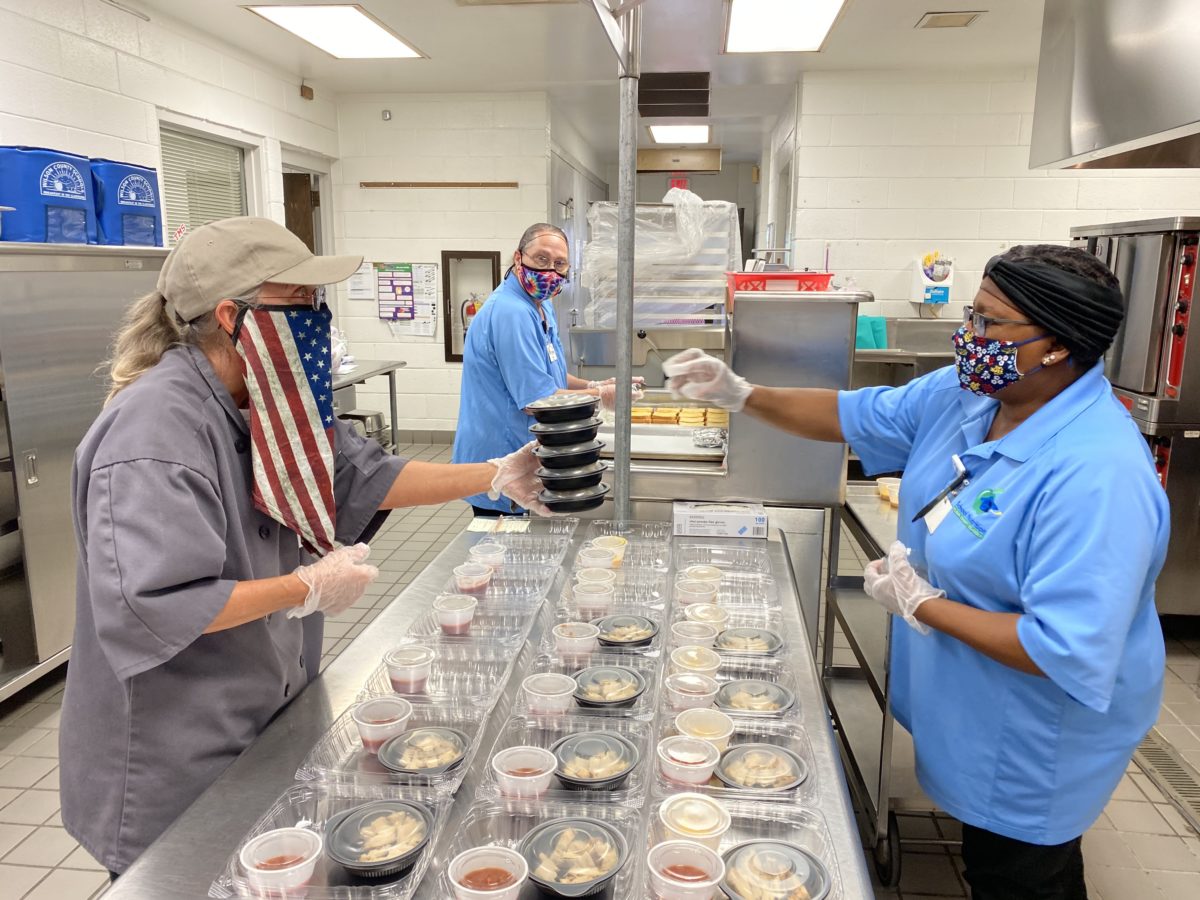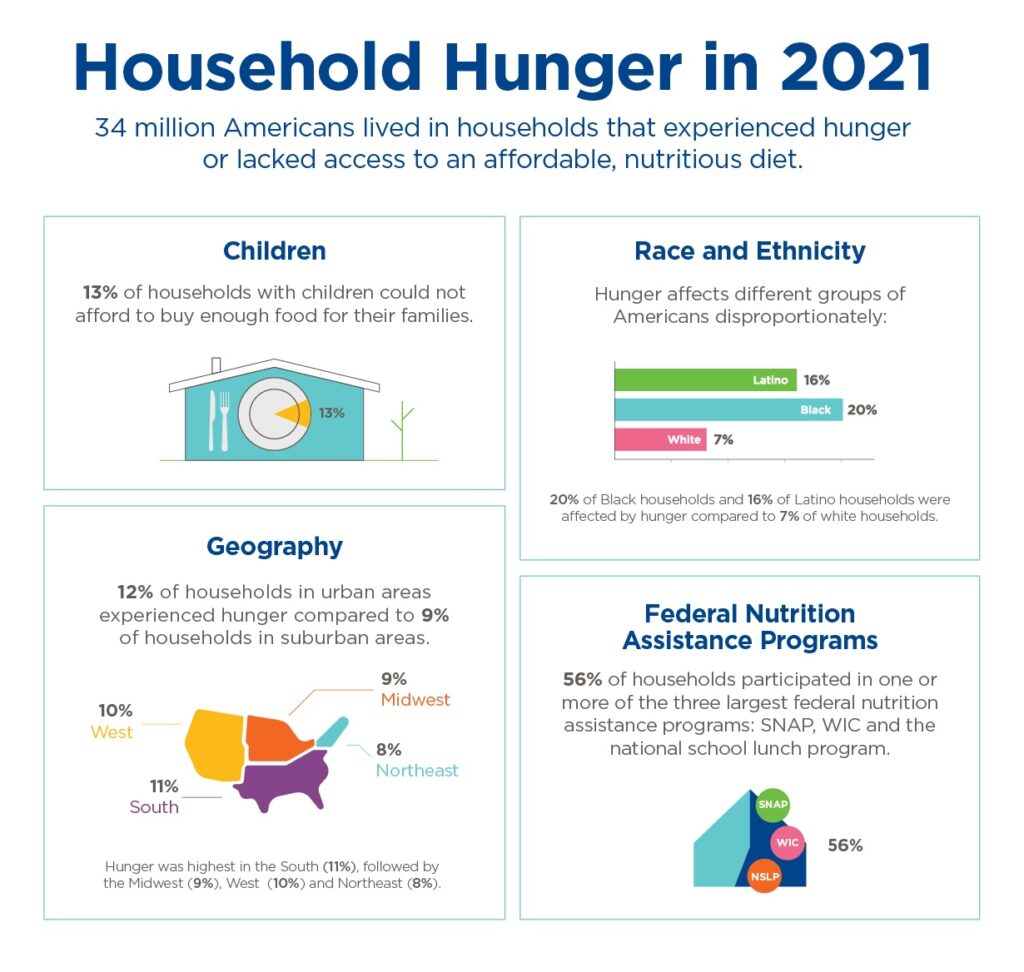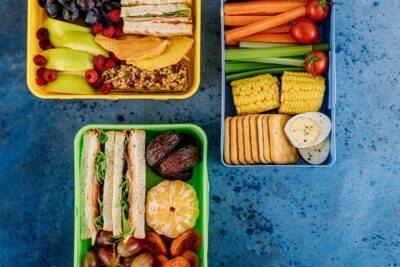
Share this story
|
|
Over 1 million people in North Carolina don’t know where their next meal is coming from. When looking at food insecurity for children, 17% qualify as food insecure. In an effort to decrease food insecurity and ensure viable nutrition for families, the North Carolina Department of Health and Human Services (NCDHHS) is rolling out a Nutrition Security Action Plan.
There are three key strategy areas for the plan:
- Increase the reach of NCDHHS’s nutrition programs.
- Build connections between NCDHHS’ health care and nutrition supports.
- Increase breastfeeding support and rates.
There are several programs already in place to help support the department’s overall strategic goal. These programs include the Food and Nutrition Services Program (FNS), the Special Supplemental Nutrition Program for Women, Infants, and Children (WIC), and Medicaid.
One of the department’s first steps is uniting the major nutrition programs.
There are communities in North Carolina that may be eligible for one or more of these programs but that are not currently enrolled. Connecting to available resources can be challenging due to factors like a lack of awareness, complex application processes, negative views about the programs themselves, or stigma associated with receiving government assistance. The department will work to break through these barriers to get more eligible people enrolled in the programs.
This action plan was built with the positive impact of initiatives previously implemented during the pandemic in mind, such as the Pandemic-EBT program. The P-EBT program has benefitted more than 1.6 million students across the state.
Access to free school meals for all during the pandemic highlighted the importance of nutrition to attainment. While advocates and families wait for a long-term solution now that the program has ended, this plan from NCDHHS could help fill in the gaps for some families.
“I’ve seen us at our worst. I’ve seen us at our best, and I am encouraged by what has transpired. We have hungry children in the state, and we must work as best we can to make sure they are adequately nourished,” said Lynn Harvey, senior director of the Office of School Nutrition at the N.C. Department of Public Instruction.
You can read the whole plan here.
Summer EBT program begins
Although the P-EBT program is coming to an end, a new program is starting to help close the hunger gap. On Dec. 23, 2022, Congress authorized a permanent nationwide program called Summer EBT. This program will be its own form of nutrition support and will not replace existing programs, like the Supplemental Nutrition Assistance Program (SNAP).
This is how the Food and Nutrition Service USDA describes the program:
“Summer EBT provides families whose children are eligible for free and reduced price school meals with grocery benefits on a debit-type card during the summer months. This model has been proven to decrease food insecurity among children through the Summer EBT demonstration projects. Permanent Summer EBT will help close the summer hunger gap for more than 29 million families across the country.”
The federal government will work with partners in state and local communities to implement the Summer EBT program. This includes hundreds of local partners across the state. You can read more about the Summer EBT program here.
Existing initiatives
There are many organizations and initiatives working for nutrition security, especially on the child hunger component, in North Carolina. One of those organizations is the Carolina Hunger Initiative.
Supported by Blue Cross and Blue Shield of North Carolina, the Carolina Hunger Initiative manages grants for school nutrition programs across the state. They also support innovations that “help schools and community organizations put food directly in the hands of North Carolinians who need it.”
Andrew Harrell, communications and project manager of the Carolina Hunger Initiative and No Kid Hungry, knows the complexity of child hunger in North Carolina.
Here are a few statistics about household hunger, provided by No Kid Hungry:

While Harrell understands the many challenges associated with ending child hunger, he remains hopeful that the fight against hunger is headed in the right direction.
“At the Carolina Hunger Initiative, we are also looking ahead to plan how to increase access to healthy food for North Carolinians, especially children. Our goals include maximizing participation in Community Eligibility Schools, reaching more rural residents with summer nutrition programs, and continuing to advocate as part of the School Meals for All NC coalition,” he said. “I’m hopeful that the NCDHHS plan, alongside the other important work happening in and out of schools and between different federal programs, represents a bright future for the fight against hunger in North Carolina.”
The Nutrition Security Action Plan is in its beginning stages of implementation. We will continue to cover how the plan unfolds and its impact on our students, schools, and communities.





